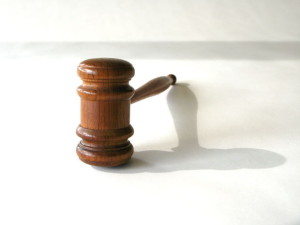Mary Meeks v. Hologic, Inc., a case from the Supreme Court of Mississippi, involved a doctor at a women’s clinic who performed an outpatient diagnostic procedure known as a hysteroscopy as well an endometrial ablation on the plaintiff. During this procedure, her doctor used a Novasure medical device. Hologic is the medical device company that manufactures Novasure.
 Two days after having the medical procedure, plaintiff went back to the medical center complaining of vomiting, nausea, and pain in her abdomen. Doctors did an initial test and determined plaintiff had a perforated uterus and the surrounding wall was blanched in a manner consistent with being burned.
Two days after having the medical procedure, plaintiff went back to the medical center complaining of vomiting, nausea, and pain in her abdomen. Doctors did an initial test and determined plaintiff had a perforated uterus and the surrounding wall was blanched in a manner consistent with being burned.
First, she filed a medical malpractice lawsuit against the doctors and the medical center, and then she asked the court for permission to add the medical device manufacturer of Novasure as an additional defendant. She filed a defective products lawsuit against the makers of Novasure after the court approved her request to add the company as an additional plaintiff. However, she had difficulty with the service of process aspect of the case and did not serve medical device manufacturer in a timely manner as required by the rules of civil procedure.
Instead of getting leave of court or consent from the other side to serve the defendant, she decided to draft an amended complaint and filed it. She then completed service on the medical device manufacturer with the amended complaint.
At this point, instead of answering the complaint, defendant filed a motion to dismiss the claims against them on grounds that the statute of limitations had elapsed, and they had not filed the amended compliant in a proper manner, so they argued it was in invalid. The trial court granted the motion on grounds that the statute of limitations had elapsed.
The primary question on appeal is whether plaintiff timely served the complaint on the medical device manufacturer. If the court determined that the complaint was properly amended, then the time of filing would relate back to the time the original filing. In this case, service was not made with respect to the first complaint in a timely manner, and plaintiff did not get leave of court (permission) to file the second amended complaint.
Ultimately, the court of appeals determined that the statute of limitations had run, as the case was not filed in a timely manner, and affirmed the trial court’s decision to dismiss the claims against defendant.
Boston products liability lawsuits often involve very complex legal issues, and you should make sure your attorney has experience dealing with these types of cases. While they often involve dangerous drugs that were prescribed by a doctor, they are not the same as a typical medical malpractice claim. There are many differences, and these defective drug or defective medical device claims often involved federal statutes, issues dealing with class action, and multidistrict litigation (MDL).
As for the issue of statute of limitations, you should never wait to contact an attorney when you have learned you have been the victim of a defective drug or defective medical device. The sooner you speak with an attorney, the more time there will be to evaluate your claims and prepare the best possible case prior to filing any pleadings with the court.
If you are the victim of Massachusetts product liability, call Jeffrey Glassman Injury Lawyers for a free and confidential appointment — (617) 777-7777.
Additional Resources:
Mary Meeks v. Hologic, Inc., December 17, 2015, Supreme Court of Mississippi
More Blog Entries:
New Total Knee Replacement Technology Helps Surgeons and Patients Alike, Nov. 25, 2015, Boston Hip Replacement Lawyer Blog
 Product Liability Lawyer Blog
Product Liability Lawyer Blog

